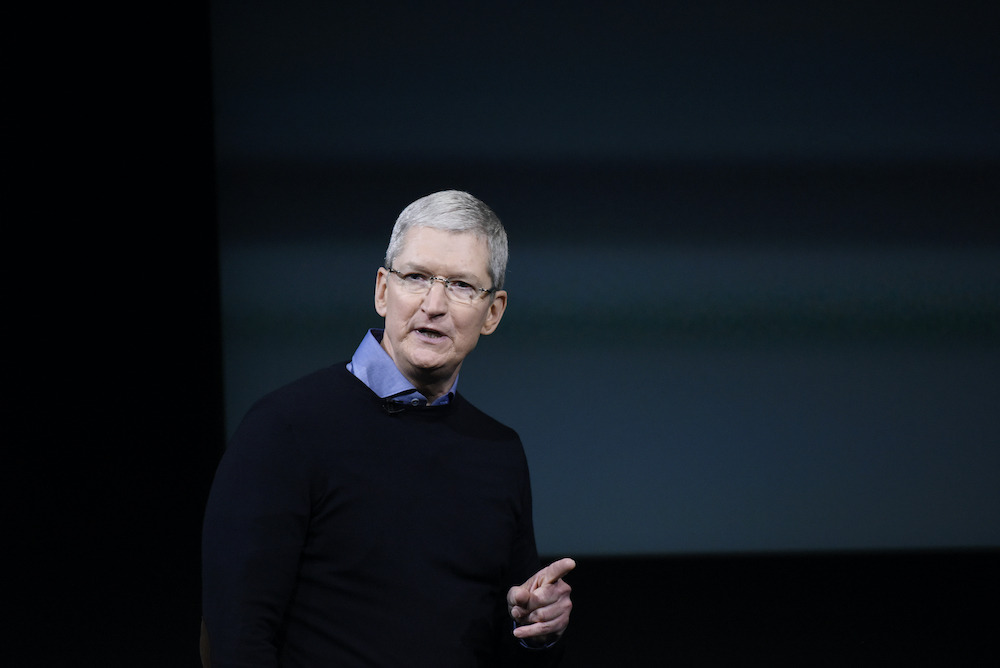After reluctantly agreeing to testify before a House antitrust committee at the start of July, Apple CEO Tim Cook has reportedly spent much of the month since preparing for it.
Cook originally showed some reservations about appearing via video conference before the U.S. House Judiciary Committee, prompting threats of a subpoena by lawmakers. On July 1, he agreed to testify.
The Apple executive has reportedly spent the time since then "huddling" with his government affairs team preparing for the meeting, according to a new report from The Information. Cook is known for his "meticulous" preparation measures.
Some of the participants in those preparatory gatherings include Lisa Jackson, Apple senior vice president of Environment, Policy and Social Initiatives, and Tim Powderly, director of government affairs and Apple's top lobbyist.
As far as why Cook was holding out on testifying, people familiar with the executive's thinking said it's because he was "firm in his belief that Apple didn't belong with a group of companies increasingly viewed as antitrust malefactors."
More than that, The Information notes that Cook has spent many years avoiding toxic political environments that have "engulfed" Apple's tech industry contemporaries. Cook himself has been a critic of those other platforms.
The hearing could cast doubt on Apple's ability to continue to avoid political controversy, the publication notes. For example, while the hearing is about antitrust, lawmakers will be able to grill CEOs on any topic they choose.
A likely topic of scrutiny for Apple is its continued refusal to build a back door for law enforcement in its iPhones. Attorney General William Barr has repeatedly criticized Apple for that.
The hearing itself is part of a broader antitrust investigation by the U.S. House. The probe is examining the market power of major tech companies like Apple, Google and Facebook. Alphabet CEO Sundar Pichai and Facebook's Mark Zuckerberg are also slated to testify.
Apple is specifically being scrutinized for its App Store policies, including its role as both a gatekeeper and a participant in the app marketplace and the fact that it takes a 15% to 30% cut of in-app purchases made through its payment platform.
The Cupertino tech giant has been in the spotlight for those policies in recent months, including during a dustup with Basecamp-created email app Hey.
In an interview alongside Hey CTO David Heinemeier Hansson, the chairman of the U.S. House Subcommittee on Antitrust called the 15% to 30% App Store fees "highway robbery."
The U.S. House hearing is slated for 12 p.m. Eastern (9 a.m. Pacific) on Monday, July 27.
 Mike Peterson
Mike Peterson







-m.jpg)






 Christine McKee
Christine McKee
 Malcolm Owen
Malcolm Owen
 Marko Zivkovic
Marko Zivkovic

 Andrew Orr
Andrew Orr
 Andrew O'Hara
Andrew O'Hara
 William Gallagher
William Gallagher





-m.jpg)



7 Comments
"Highway Robbery". Screw that. Every single online store across all platforms charges about 30%. Google Play, Windows store, Xbox, Playstation, Samsung. All of them. It is the cost of distribution
"Much of July"? Not a chance.
(As an aside, The Information does seem like a very good publication.)
Is there a law that says you can't take a cut from a digital storefront? No. Is there a law that limits the cut to a certain amount? No. Is there a law that says you can't operate a digital store and also sell applications in that store? No. Congress may decide to make changes in current laws or pass new ones, but this isn't going to be much of a "gotcha" session for Cook in terms of antitrust issues. Like the article mentions, the "gotcha" part may end up being in a different category altogether.
SO
that is why all my products are syncing and performing well within each other this month and I boxed up my Dell XPS last week.
I fear for august, and somehow strange things ALWAYS happens to our devices in September before the release of the new hounds.
Ah yeah I'm not sure who would be thrilled to take time away from running one of the most successful (and likely demanding) companies on the planet to go testify in front of a bunch of hypocritical technophobes.
This lot spend a lot of time scandalising what is independently evaluated to be fair and reasonable - meanwhile there is a laundry list of cash-driven scandal behind so many of them. It's why phrases such as "greasing the wheels" exists with special context to US elected officials.